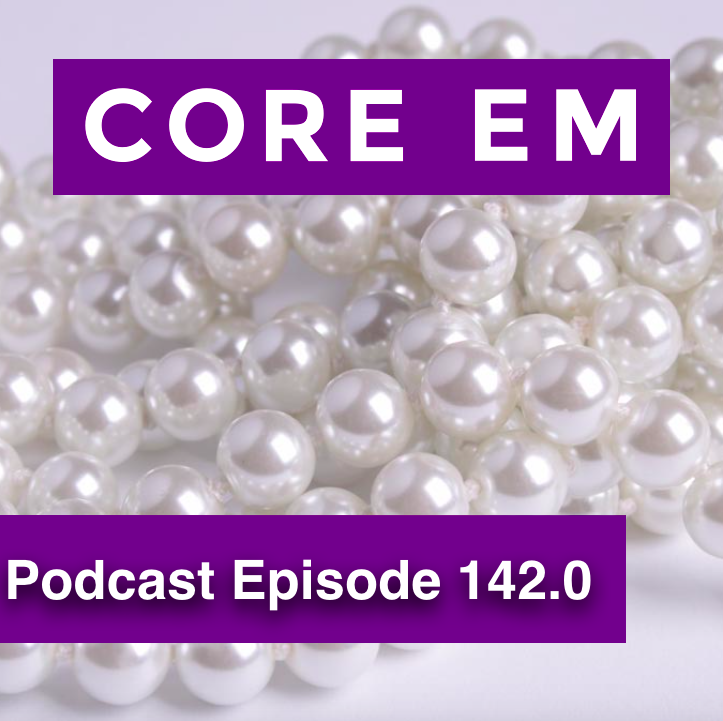This week we discuss more pearls from our morning report conference on APE, SAH and caustic ingestions.

 Core EM - Emergency Medicine Podcast
Core EM - Emergency Medicine Podcast Episode 142.0 – Morning Report Pearls IV
4 snips
Apr 23, 2018 Explore essential strategies for managing acute pulmonary edema with high-dose nitroglycerin for rapid effects. Delve into the nuances of delayed sequence intubation for tough cases. Gain insights on subarachnoid hemorrhage, emphasizing the importance of timely imaging and recognizing headache red flags. Learn how to handle caustic ingestions, focusing on the need for readiness in airway management as conditions can deteriorate quickly. These pearls are vital for any emergency practitioner!
AI Snips
Chapters
Transcript
Episode notes
High-Dose Nitro for Pulmonary Edema
- In acute pulmonary edema, use high-dose IV nitro to rapidly reduce preload and afterload.
- Start around 400-500 mcg/min for 4-5 minutes, then taper based on patient response.
Delayed Sequence Intubation with Ketamine
- Use delayed sequence intubation to enable pre-oxygenation in agitated patients who can't tolerate masks in acute pulmonary edema.
- Ketamine is the preferred drug as it preserves respiratory drive and calms the patient.
CT Timing in Subarachnoid Hemorrhage Workup
- A non-contrast head CT within 6 hours from headache onset is highly sensitive for ruling out subarachnoid hemorrhage.
- Consider lumbar puncture if high suspicion persists or if CT is done after 6 hours.

